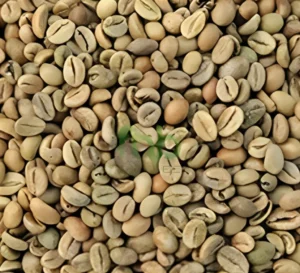Caffeine is one of the most widely consumed psychoactive substances globally. Whether you’re starting your morning with a cup of coffee or grabbing an energy drink during the afternoon slump, caffeine is often the go-to stimulant to help you feel more awake and alert. But one question that often arises is, how long does it take for caffeine to kick in? The answer may seem straightforward, but several factors can affect how quickly you feel the effects of caffeine.
In this article, FnB Coffee will explore how caffeine works in the body, the science behind its effects, and how long it typically takes for caffeine to take effect. We will also look at factors that can influence caffeine’s onset and how it varies for different individuals.
The Science of Caffeine
Caffeine is a natural stimulant found in coffee, tea, energy drinks, and various other products. It primarily affects the central nervous system, where it blocks the action of a neurotransmitter called adenosine.
Adenosine is responsible for promoting relaxation and drowsiness. When caffeine blocks adenosine receptors, it has an alerting and stimulating effect on the brain, making you feel more awake and energetic.
Absorption and Distribution
Once you consume caffeine, it is absorbed into the bloodstream through the stomach and small intestine. This process begins quickly, with caffeine reaching its peak concentration in the blood within 30 to 60 minutes after ingestion.
However, the time it takes for caffeine to have noticeable effects can vary depending on several factors.
Read also: Is Your Coffee Caffeine Intake Too High? Find Out the Surprising Truth!
Factors Influencing How Long It Takes for Caffeine to Kick In

1. Type of Caffeine Source
The form in which you consume caffeine can influence how quickly it starts to affect you. For example, drinking a cup of coffee may have a quicker onset than consuming caffeine through a pill or other slow-release formulations.
This is because liquid caffeine is absorbed more rapidly than solid or powdered forms, which need to be broken down first.
2. Amount of Caffeine Consumed
The more caffeine you consume, the more pronounced its effects will be. A single cup of coffee might give you a mild energy boost, while larger doses can lead to a stronger, more immediate effect.
However, the body can only process caffeine at a certain rate, so consuming very large amounts at once may lead to discomfort without significantly speeding up the time it takes to feel its effects.
3. Individual Metabolism
Your metabolism plays a key role in how quickly caffeine takes effect. Some people have a faster metabolism and may feel the effects of caffeine within 15 to 30 minutes of consumption.
Others with slower metabolisms might take longer to feel the effects, sometimes up to 90 minutes. Genetics also influence how efficiently your liver processes caffeine, impacting how quickly you feel its effects.
4. Tolerance Levels
People who consume caffeine regularly tend to build a tolerance, meaning they may need higher doses to feel the same effects. For individuals who are not regular caffeine consumers, even a small amount can lead to noticeable stimulation.
This factor is particularly important when considering how long does it take for caffeine to kick in, as tolerance can delay the onset for habitual users.
5. Empty Stomach vs Full Stomach
Consuming caffeine on an empty stomach tends to speed up the absorption process, making the stimulating effects kick in faster. On the other hand, if you consume caffeine with food, it may take longer to feel the effects because the food slows down the absorption process.
This delay can result in a slower onset, often taking 30 to 60 minutes, or even longer, depending on the size of the meal.
6. Body Weight and Composition
A person’s weight and body composition can influence how quickly they feel the effects of caffeine. People with more body mass may require more caffeine for the same stimulating effects as someone with less body mass.
This is due to the way caffeine is distributed throughout the body. However, weight does not necessarily determine how quickly caffeine takes effect—smaller individuals may feel the effects faster, even with smaller doses.
7. Hydration Levels
Caffeine is a mild diuretic, meaning it can lead to increased urine production. If you are already dehydrated, your body may absorb caffeine more slowly, delaying the onset of its effects.
Staying hydrated can help your body process caffeine more efficiently, allowing you to feel its effects faster.
8. Caffeine Sensitivity
Some individuals are more sensitive to caffeine than others. For sensitive individuals, even small doses of caffeine can lead to faster and stronger effects, often taking less than 15 minutes to feel the full impact.
This sensitivity is influenced by genetic factors, lifestyle, and even the presence of certain medical conditions.
Read also: Strongest High Caffeine Coffee
How Long Does It Take for Caffeine to Kick In? The General Timeline
For most people, how long does it take for caffeine to kick in typically falls within a standard range:
1. 15 to 30 Minutes
This is the usual onset time for caffeine, especially if consumed on an empty stomach. The effects begin to be felt as caffeine enters the bloodstream and starts affecting the central nervous system.
If you’re consuming a quick caffeine source like coffee, you may feel a subtle increase in alertness within this time frame.
2. 30 to 60 Minutes
Most people begin to feel the full effects of caffeine within this window. The peak concentration of caffeine in the blood is typically reached at this time, and you may experience increased energy, alertness, and improved mood. This is when the most noticeable effects are felt.
3. 60 to 90 Minutes
For some individuals, especially those with a slower metabolism or those who have consumed caffeine with food, the effects may take longer to be felt. This can be especially true if you’ve consumed a slower-release caffeine product, such as a pill or a high-protein meal with your caffeine intake.
How Long Do the Effects Last?
The effects of caffeine usually last between 3 to 5 hours, although the duration can vary. This is because the half-life of caffeine (the time it takes for half of the caffeine consumed to be metabolized and eliminated from the body) is typically around 3 to 5 hours for most people.
However, in some cases, this duration can extend to as much as 12 hours, depending on your metabolism, age, and other factors.
Caffeine Sensitivity and Overuse
It is important to note that consuming too much caffeine can lead to unpleasant side effects such as jitteriness, anxiety, and insomnia. These effects are typically more pronounced in individuals with a lower tolerance or higher sensitivity to caffeine.
Therefore, it is crucial to monitor your intake and understand how your body reacts.
Conclusion
The time it takes for caffeine to kick in can vary based on several factors, including the type of caffeine consumed, your body composition, and individual metabolism. For most people, caffeine takes between 15 to 30 minutes to start showing effects, with peak effects occurring around 30 to 60 minutes.
Understanding how caffeine works in your body can help you maximize its benefits and avoid any uncomfortable side effects. Whether you’re reaching for a cup of coffee to jumpstart your day or need a quick energy boost, now you have a clearer idea of how long does it take for caffeine to kick in and what factors influence its onset.
Remember, everyone’s body responds differently to caffeine, so it may take some time to figure out what works best for you. Keep these factors in mind the next time you reach for that cup of coffee, and enjoy the stimulating effects at their full potential!











































 Arabic
Arabic Chinese (Simplified)
Chinese (Simplified) Dutch
Dutch English
English French
French German
German Indonesian
Indonesian Italian
Italian Japanese
Japanese Portuguese
Portuguese Russian
Russian Spanish
Spanish